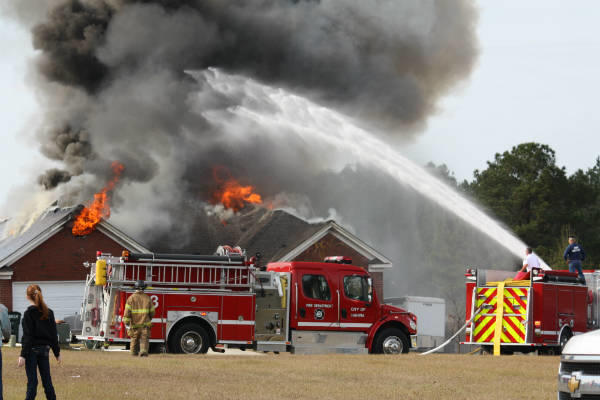This content is provided courtesy of USAA.
December Home Maintenance Tips
Heaters, holiday lights and seasonal baking and cooking can boost the chance of fires, but you can reduce these risks by taking precautions and being diligent about maintenance around your home.
- Make sure your fire extinguishers are charged and within reach of your kitchen and garage.
- Inspect electrical cords to see if they're frayed, and be sure outlets and power strips are not overloaded.
- Check lamp sockets to ensure the bulb you're using doesn't exceed the recommended wattage.
- Turn off tree and outdoor holiday lights, as well as space heaters, when you're away or asleep.
- Have gas furnaces and heat pumps serviced every two years and oil-fired systems checked annually.
- Test smoke alarms regularly to ensure they're working properly — and make sure to change the batteries at least once a year.
What's Your Escape Plan?
The U.S. Fire Administration says it takes less than 30 seconds for a small flame to turn into a major fire and only minutes for a house to fill with thick, black smoke and become engulfed in flames. It recommends creating a family escape plan that includes two ways out of each room. Practice the plan each month. For a dose of reality when you practice, feel your way out of the house in the dark or with your eyes closed.Christmas Tree Fire Hazards (U.S. Fire Administration)
Watch Out for Ice Dams
Ice dams form on roofs when rain and snow accumulate, freeze, thaw and refreeze. This causes water to back up, which can lead to leaks and water damage. Take these steps to help prevent ice dams from forming on your roof:
- Eliminate heat sources under the roof, such as lights and heaters in the attic. They can contribute to thawing.
- On low-slope or flat roofs, use a roof rake or heavy-duty push broom to remove snow or rain before an ice dam can form. Also, keep gutters free of leaves and debris.
- If you do see an ice jam, use caution when trying to break it up because you could damage the roofing materials.
Preventing Ice Dams on Homes (Insurance Institute for Business & Home Safety)
Monthly Reminder
To prevent water damage and electrical malfunction, inspect your water heater for rust or cracks. Remember to drain the tank each year.
